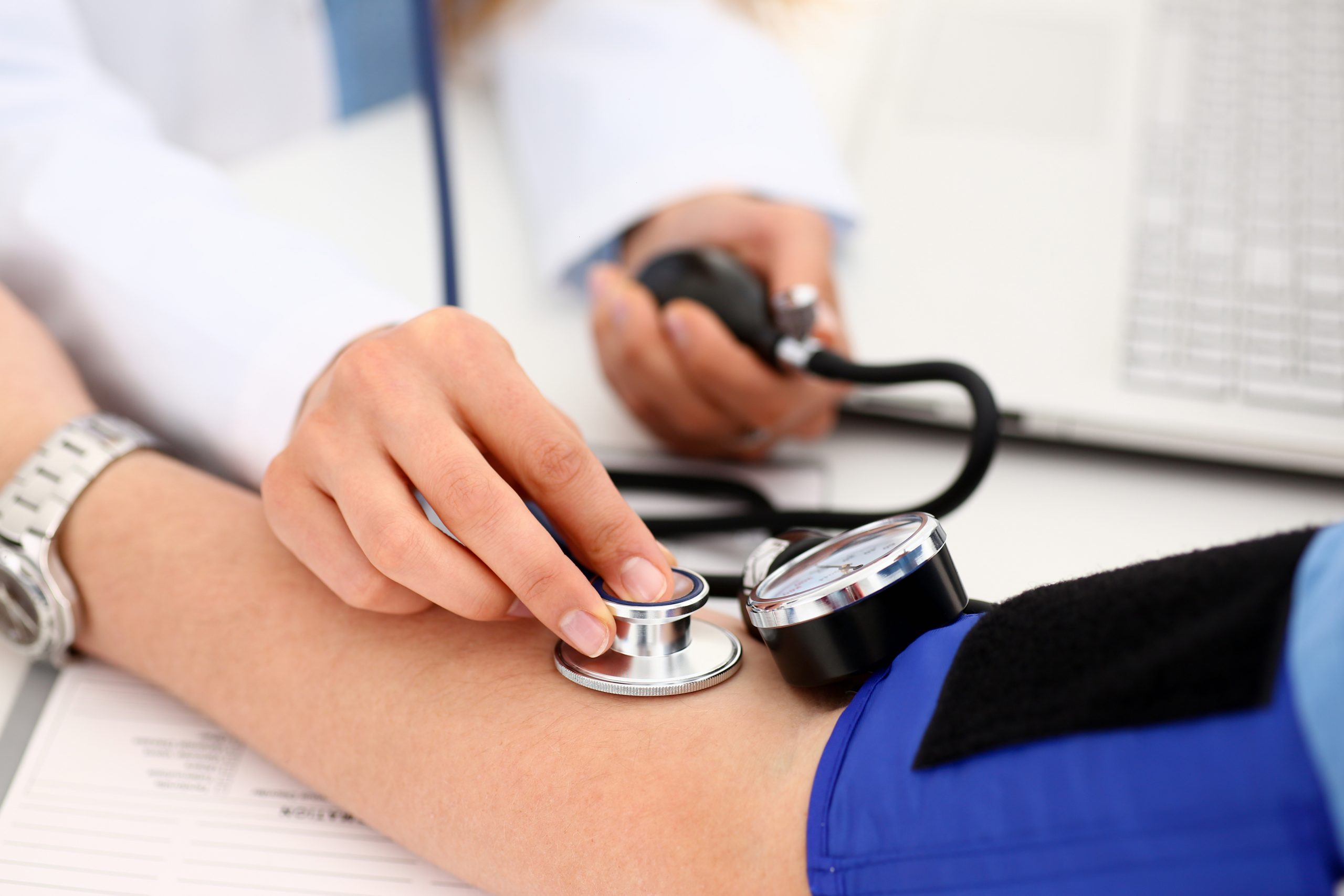Hypertension, or high blood pressure, is the excessive force of blood being pumped around your body. Sometimes a person can develop high blood pressure because of excess hormone levels or problems with blood flow to the kidney. This form of high blood pressure is called secondary hypertension, meaning it is caused by another process. Most commonly, however, high blood pressure develops without an identifiable cause. We refer to this as essential hypertension.
Risk Factors for Hypertension:
- Family history
- Physical inactivity
- Obesity
- Excessive alcohol consumption
- Age
Long-standing hypertension can cause damage to organs. As a result, it can lead to coronary artery disease, heart failure, stroke, and kidney disease. Most people with high blood pressure have no symptoms. Therefore, hypertension has been called “the silent killer.”
Defining Hypertension
On blood pressure readings the top number is called systolic and the bottom is called diastolic.
- Normal blood pressure – Systolic <120 mmHg and diastolic <80 mmHg
- Elevated blood pressure – Systolic 120 to 129 mmHg and diastolic <80 mmHg
- Hypertension Stage 1 – Systolic 130 to 139 mmHg or diastolic 80 to 89 mmHg
- Hypertension Stage 2 – Systolic at least 140 mmHg or diastolic at least 90 mmHg
Things You Can Do to Help Control Blood Pressure
- Follow a lower salt diet (daily sodium of 2400 mg or less)
- Lose weight if overweight
- Avoid drinking too much alcohol
- Exercise regularly (ideally at least 30 min five days a week). Walking works!
- Stop smoking
- Take your medicines regularly
How to Monitor Your Blood Pressure at Home
- Avoid caffeine, exercise, and smoking for at least 30 minutes
- Relax, sit in a chair with both feet on the ground
- Wait several minutes before taking a measurement
- Use the right size cuff for your arm
- Support the arm at chest level
- Keep a record of your blood pressure readings to take to share with your provider
Goals of Blood Pressure Control
- Generally, target blood pressure should be less than 130/80
- Patients over age 75 or having other problems might have a higher target BP
- Medicines such as ACE-inhibitors or ARBs are preferred in patients with kidney disease, if possible
- Your doctor will review your readings and goals with you
For additional information: check www.heart.org


